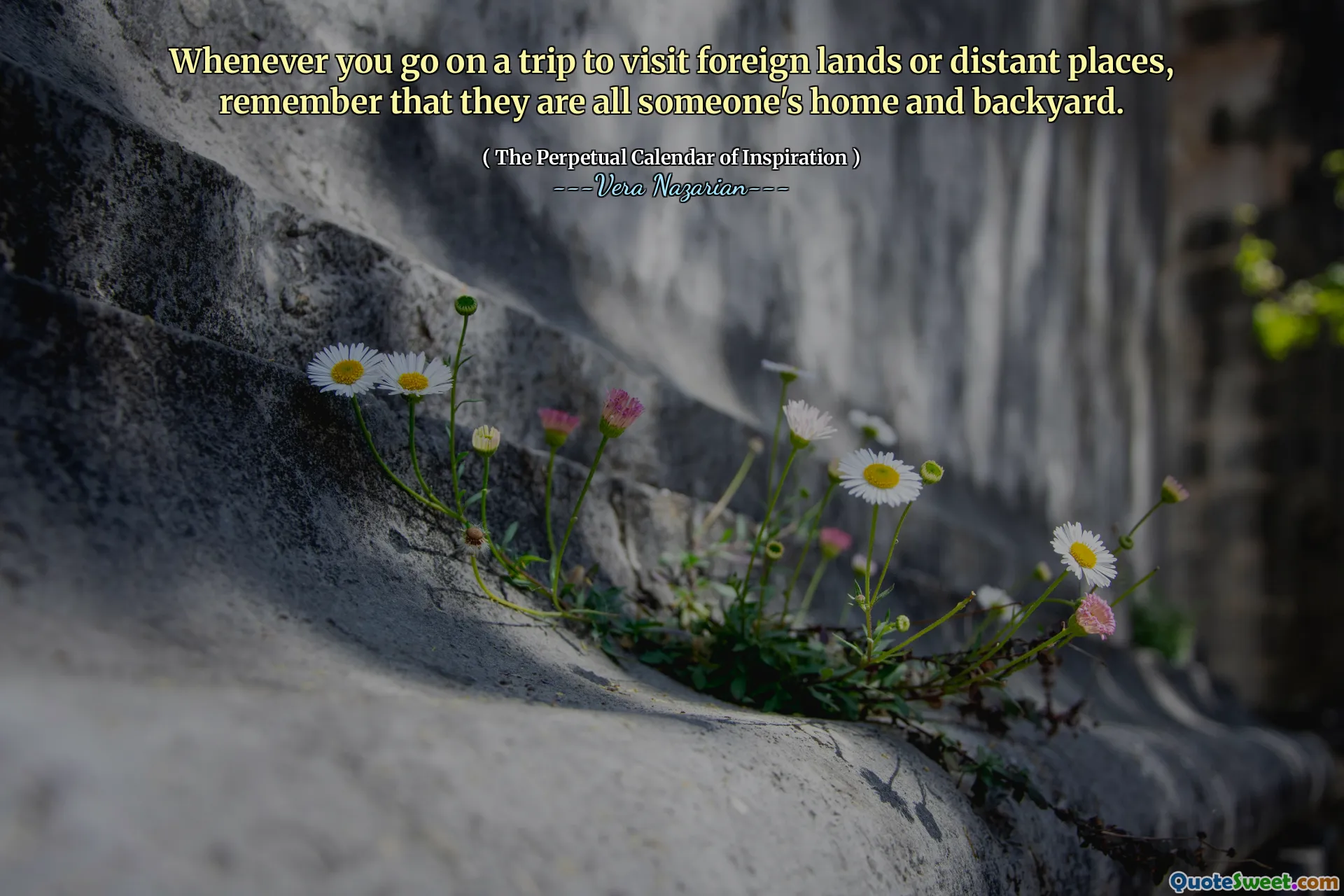
Whenever you go on a trip to visit foreign lands or distant places, remember that they are all someone's home and backyard.
Traveling to new locations often opens our eyes to diverse cultures, landscapes, and traditions. However, it is crucial to remember that behind every unfamiliar sight or setting, there is a world of personal stories, memories, and daily life belonging to the local inhabitants. Recognizing that foreign lands are someone’s home fosters empathy and respect. It invites us to view travel not as mere sightseeing but as an opportunity to connect on a human level, appreciating the shared humanity that transcends borders. When we understand that each place holds a history and a community—just as our own home does—we become more mindful travelers, respecting the environment, local customs, and the privacy of residents. This perspective encourages a humble approach to exploration, steering us away from treating distant places as exotic spectacles and prompting us instead to see them as vibrant, living homes. Moreover, this reflection can induce a sense of responsibility to preserve the integrity of these communities and environments. The idea that all places are someone's home also reminds us that we are all part of a bigger interconnected world, where kindness and respect form the foundation of meaningful experiences. As travelers, our interactions can leave positive impacts or inadvertently cause harm; acknowledging the humanity behind every destination urges us to act conscientiously. Ultimately, travel becomes a reciprocal journey—both outward and inward—where understanding, empathy, and humility lead to genuine connection and enriched perspectives.






